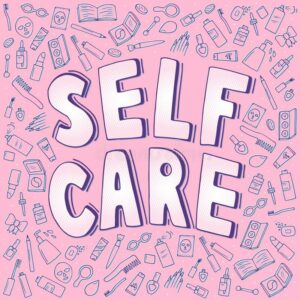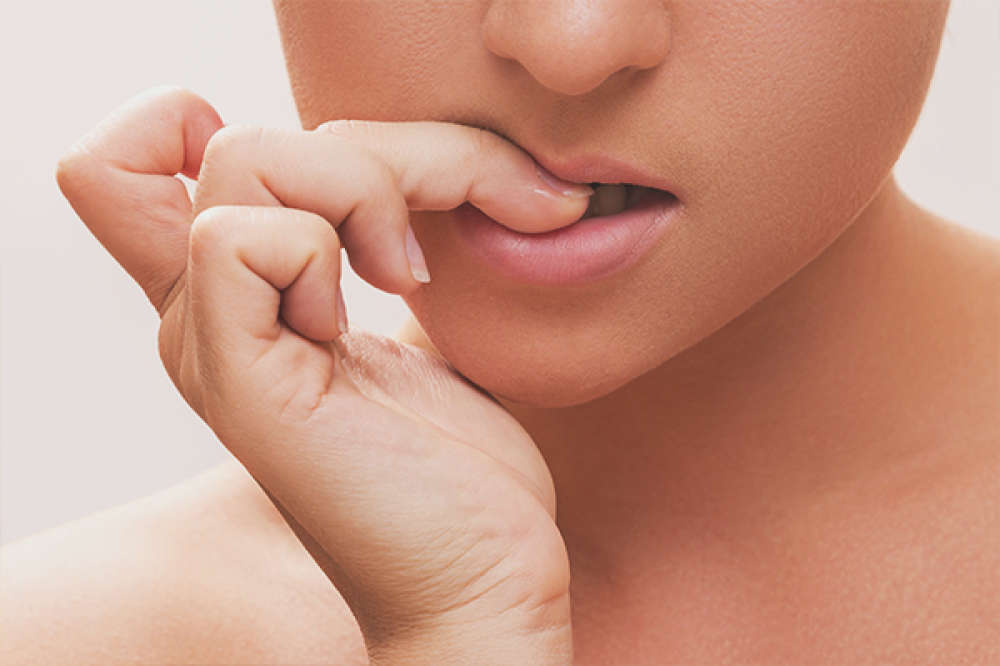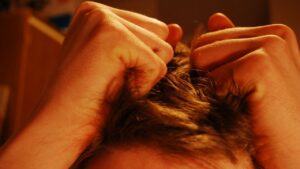Do you sometimes bite your nails? Or pull out your hair? If so, you’re not alone. body-focused repetitive behaviors (BFRBs) are common and can be very difficult to stop. In this blog post, we will discuss what BFRBs are, how they can be treated, and some of the best ways to cope with them. We hope that this information will help you better understand and manage your own BFRBs.
Contents
What Are Body-Focused Repetitive Behaviors?
Body-focused repetitive behaviors (BFRBs) are a type of mental disorder that causes people to compulsively engage in certain actions.
People with BFRBs often feel immense anxiety or stress before engaging in their behavior and may feel relief or even pleasure after completing the action. There is not currently a cure for body-focused repetitive behaviors, but there are treatments that can help people manage their symptoms.
What Are The Symptoms?
Several different body-focused repetitive behaviors can manifest themselves in various ways. Some common examples include:
- Cheek biting
- Lip biting
- Teeth grinding or clenching
- Body rocking
- head banging
- Trichotillomania (hair pulling)
- Dermatillomania (skin picking)
- Onychophagia (nail biting)
- Rhinotillexomania (nose picking)
- Pathologic grooming in animals
- Compulsive body checking
These behaviors can often be soothing or satisfying for the individual, and as a result, they can be difficult to break free from.
What Are The Causes?
There are many potential causes of body-focused repetitive behaviors, including:
Genetic Predisposition
 Some people may be more likely to develop body-focused repetitive behaviors due to their genes.
Some people may be more likely to develop body-focused repetitive behaviors due to their genes.
Some research suggests that these behaviors may be linked to genetic predisposition. For example, studies have found that body-focused repetitive behaviors are more common in twins than in the general population. This suggests that there may be a genetic component to these disorders.
Let’s take another example. For instance, someone who has a family history of anxiety or OCD may be more likely to develop body-focused repetitive behaviors.
Brain Structure Or Function
One theory suggests that BFRBs are caused by a dysfunction in the part of the brain that controls movement. This can lead to a person feeling an urge to move their body in a certain way or to repeat certain movements over and over again. Another theory suggests that body-focused repetitive behaviors may be caused by an imbalance in the levels of neurotransmitters in the brain. This can lead to a person feeling compulsions or urges to perform certain actions.
Therefore, brain structure or function may play a role in body-focused repetitive behaviors.
Psychological Factors
Many psychological factors can cause body-focused repetitive behaviors. For example, body dysmorphic disorder (BDD) is a condition where someone is obsessed with a perceived flaw in their appearance. This can lead to them engaging in repetitive behaviors like picking at their skin or pulling out their hair.
Other psychological disorders like OCD or trichotillomania (hair pulling disorder) can also cause body-focused repetitive behaviors.
Another example of a psychological factor that can cause body-focused repetitive behaviors is anxiety. People with anxiety may engage in habits like nail biting or skin picking when they’re feeling stressed. This is because the repetitive motions can help to soothe and calm them down.
Environmental Factors
Several environmental factors can contribute to the development of body-focused repetitive behaviors. For example, individuals who grow up in homes where there is a lot of violence or trauma may be more likely to develop these types of behaviors as a way of coping with their experiences. Additionally, people who have experienced abuse or neglect are also at increased risk for developing body-focused repetitive behaviors.
Physical Health Conditions
Several physical health conditions can cause body-focused repetitive behaviors. For example, OCD, ADHD, and body dysmorphic disorder have both been linked to body-focused repetitive behaviors. to include:
- Autism spectrum disorder
- Tourette’s syndrome
- Trichotillomania (hair pulling)
- Excoriation disorder (skin picking)
These are just a few examples of how physical health conditions can be linked to the development of body-focused repetitive behaviors. It is important to note that not everyone who suffers from a physical health condition will develop body-focused repetitive behaviors.
What Are The Consequences?
Body-focused repetitive behaviors can lead to several consequences, including:
Social Isolation And Withdrawal
 Body-focused repetitive behaviors (BFRBs) often result in social isolation and withdrawal due to the shame and embarrassment that comes with them.
Body-focused repetitive behaviors (BFRBs) often result in social isolation and withdrawal due to the shame and embarrassment that comes with them.
For example, someone with trichotillomania (a type of BFRB) may avoid going out in public because they are afraid that people will see them picking their hair. This can lead to feelings of loneliness and social anxiety.
Another example includes an individual with dermatillomania (another type of BFRB) who may feel too self-conscious to wear certain clothes or participate in activities because they are afraid that people will see their skin-picking scars.
Relationship Difficulties
BFRBs often result in relationship difficulties because they can be extremely time-consuming and lead to scarring or disfigurement. They can also be embarrassing and make it difficult for people to socialize or date.
For example, someone with trichotillomania may be hesitant to go on a date or to a social event because they are afraid of being seen without their wig or hat.
Let’s say that someone with dermatillomania has scars on their face as a result of their picking. They may be self-conscious about these scars and feel like they are not worthy of love or attention.
Difficulty Concentrating Or Completing Tasks
BFRBs are a type of mental disorder that results in a person finding it difficult to concentrate or complete tasks. This is because they are constantly engaging in repetitive, body-focused actions such as pulling their hair, picking at their skin, or biting their nails. These behaviors can be extremely harmful and destructive, both physically and mentally
The victims may have problems with concentrating or completing tasks as the body-focused repetitive behaviors can be very distracting. For example, someone who bites their nails may find it difficult to concentrate on anything else because they are constantly thinking about the urge to bite their nails. This can lead to them feeling anxious and stressed, which can further impact their ability to concentrate or complete tasks.
Poor Work Or School Performance
BFRBs often lead to poor work or school performance. This is because the individual is spending so much time thinking about and performing repetitive behavior that they are not able to focus on their studies or job tasks.
In addition, BFRBs can cause physical damage to the body which can lead to absences from work or school. Finally, individuals with BFRBs often suffer from low self-esteem and body image issues, which can make it difficult to perform well in school or work.
Increased Anxiety And Depression
While BFRBs may seem harmless at first, they can often increase anxiety and depression.
For example, someone who is feeling anxious might start pulling their hair as a way to soothe themselves. However, this coping mechanism can quickly become detrimental if it leads to further anxiety or body-image issues.
Another theory is that BFRBs are a form of body dysmorphic disorder (BDD). People with BDD have a distorted view of their bodies and often believe that they are “ugly” or “flawed” in some way. As a result, they may engage in repetitive behaviors as a way to try and fix their perceived imperfections.
Muscle Tension And Pain
BFRBs are a type of repetitive behavior characterized by an intense urge to perform a body-focused action, such as pulling hair, picking skin, or biting nails. These behaviors typically result in muscle tension and pain.
This is because the body is constantly contracting and releasing the muscles to perform the behavior. Additionally, the body is often trying to resist the urge to perform the behavior, which can lead to further muscle tension.
Skin Damage
The most common BFRBs are trichotillomania (hair pulling) and excoriation disorder (skin picking). While these behaviors may seem harmless, they can cause significant damage to the body.
BFRBs often result in skin damage due to the repetitive nature of the behavior. For example, if someone with trichotillomania repeatedly pulls out their hair, they can damage their scalp and hair follicles. This can lead to balding, scarring, and other problems. Similarly, someone with excoriation disorder may pick at their skin so much that they cause bleeding, scarring, and infection.
Sleep Difficulties
One of the most common and debilitating symptoms associated with BFRBs is sleep difficulties. People with BFRBs often report higher levels of insomnia, including difficulty falling asleep, staying asleep, and early morning awakenings. They also report poorer sleep quality overall.
There are several reasons why sleep difficulties are so common in people with BFRBs. First, the repetitive behaviors themselves can be disruptive to sleep. For example, someone who is pulling their hair may do so for hours at night, preventing them from getting a restful night’s sleep.
Second, the anxiety and stress associated with BFRBs can make it difficult to relax and fall asleep. And finally, many people with BFRBs also have other mental health conditions that can contribute to sleep problems, such as depression and anxiety disorders.
Exhaustion
Exhaustion is a common symptom of BFRBs for two reasons. First, the constant urge to perform the behavior can be mentally and physically draining.
Second, the behaviors themselves can be time-consuming and energy-intensive. For example, someone who spends hours each day picking at their skin may not have the energy to do much else. As a result, they may start to feel isolated and exhausted.
How Can Therapies Help?
Several therapies can help manage body-focused repetitive behaviors. These include:
Cognitive Behavioral Therapy
 CBT is an effective treatment for body-focused repetitive behaviors. It helps people to manage and overcome their body-focused repetitive behaviors by teaching them new ways of thinking and behaving.
CBT is an effective treatment for body-focused repetitive behaviors. It helps people to manage and overcome their body-focused repetitive behaviors by teaching them new ways of thinking and behaving.
For example, CBT can help people to learn how to control their urges to engage in body-focused repetitive behaviors, how to cope with the anxiety that may trigger these behaviors, and how to develop healthy coping mechanisms for dealing with stress.
In addition, CBT can help people identify any environmental or situational triggers that may contribute to their body-focused repetitive behaviors, and develop strategies for avoiding or managing these triggers. Finally, CBT can help people to develop a more positive body image and self-esteem, which may reduce the urge to engage in body-focused repetitive behaviors.
Exposure And Response Prevention Therapy
This type of therapy involves gradually exposing oneself to the situations or triggers that cause body-focused repetitive behaviors while learning to resist the urge to engage in these behaviors.
For example, someone who compulsively bites their nails may start by slowly exposing themselves to situations where they feel the urge to bite their nails. They may do this by sitting for a few minutes with bare hands around other people or looking at pictures of nails being bitten.
As they become more comfortable with these situations, they would then gradually increase the length of time spent in these situations. At the same time, they would learn healthy coping mechanisms, such as deep breathing or squeezing a stress ball, to help deal with the urge to bite their nails.
Dialectical Behavior Therapy
DBT is a type of cognitive-behavioral therapy that was originally developed to treat borderline personality disorder. It has since been adapted and found to be effective in treating several other mental health conditions, including body-focused repetitive behaviors.
DBT aims to help people learn how to manage their emotions better and cope with stress. One key component of DBT is learning how to identify and change negative thought patterns. This can be especially helpful for people with body-focused repetitive behaviors, as they often engage in these behaviors as a way of coping with negative emotions.
Another key component of DBT is learning how to develop healthy coping mechanisms. This may involve things like learning how to meditate or practice other forms of relaxation. For people with body-focused repetitive behaviors, this can help them find alternative ways to cope with their emotions instead of engaging in the behavior.
Acceptance And Commitment Therapy
One treatment approach that has shown promise in treating BFRBs is Acceptance and Commitment Therapy. ACT is a form of cognitive-behavioral therapy that helps people to accept their thoughts and feelings, while also committing to taking action in pursuit of their goals.
There are many different ways in which ACT can be applied to body-focused repetitive behaviors. One common approach is to use what are known as “commitment statements.” Commitment statements are specific, positive statements about what a person is willing to do despite the urge to engage in a body-focused repetitive behavior.
For example, a commitment statement for someone with skin picking might be “I am willing to feel the urge to pick, and not give in to it.” Other commitment statements might be “I am willing to have imperfect skin,” or “I am willing to be around people even if my skin is not perfect.”
ACT can also help people with BFRBs to develop more effective coping strategies. For example, it may involve the practice of Mindfulness which can help people to become more aware of their body-focused repetitive behaviors and the thoughts and feelings that precede them.
Art Therapy
Art therapy is a form of psychotherapy that uses art-making as a way to explore emotions, address behavioral issues, and improve mental well-being. It can help people with BFRBs to:
- Understand their triggers: Art therapy can provide a safe space to explore the emotions and situations that trigger BFRBs. This can help to identify patterns and develop strategies for avoiding or managing triggers.
- Develop coping skills: Art therapy can help people with BFRBs to develop healthy coping mechanisms. This may involve learning how to deal with anxiety, stress, and negative emotions in a productive way.
- Express themselves: Art therapy can be a helpful outlet for expressing difficult emotions. It can also be used to explore the thoughts and feelings that contribute to BFRBs.
- Build self-esteem: body-focused repetitive behaviors can lead to feelings of shame and low self-esteem. Art therapy can help people with BFRBs to see themselves in a more positive light and appreciate their unique qualities.
These are just a few of the many therapies that can help manage these behaviors. Talk to your doctor or mental health professional to find out which therapy may be right for you.
While there is no cure for body-focused repetitive behaviors, these therapies can help individuals manage their symptoms and live a more fulfilling life. If you or someone you know is struggling with body-focused repetitive behaviors, please reach out to a mental health professional to move on the path to recovery.
How Can Self-Care Strategies Help?
 There are a few things that can be done to help manage body-focused repetitive behaviors. Following some self-care tips may help you get relief. Some of such useful tips are:
There are a few things that can be done to help manage body-focused repetitive behaviors. Following some self-care tips may help you get relief. Some of such useful tips are:
- Get enough sleep: Most people need around eight hours of sleep per night. Consider going to bed and waking up at the same time each day to help regulate your body’s natural sleep rhythm.
- Eat healthy meals: Eating nutritious foods helps your body to function at its best. Make sure to eat plenty of fruits, vegetables, and whole grains. Avoid processed foods, sugary drinks, and excessive amounts of caffeine.
- Exercise regularly: Exercise is a great way to reduce stress and improve your overall health. A moderate amount of exercise is the key – too much exercise can increase stress levels.
- Take breaks during the day: When you’re feeling overwhelmed or stressed, take a few minutes to yourself to relax and rejuvenate. Take a hot bath, read your favorite book, or take a walk outdoors.
- Connect with loved ones: Spending time with family and friends can help reduce stress and promote positive emotions. Talking about your issue with someone supportive can also help manage these behaviors.
- Explore new places: Trying new things and venturing outside of your comfort zone can help reduce stress and promote positive emotions.
By following some or all of these self-care tips, you may be able to better manage body-focused repetitive behaviors. It is important to remember that everyone is different and what works for one person may not work for another. If you find that your body-focused repetitive behaviors are impacting your quality of life, consider speaking with a mental health professional to explore other treatment options.
Conclusion
Body-focused repetitive behaviors can be better managed by taking some self-care tips. Some of these tips are discussed in detail and they include getting enough sleep, eating healthy meals, exercising regularly, taking breaks during the day, connecting with loved ones, and exploring new places. If you find that your body-focused repetitive behaviors are impacting your quality of life, consider speaking with a mental health professional to explore other treatment options.
Don’t be shy to contact us if such problems are impacting your quality of life. Our team at the Center for Anxiety and OCD at Stanford is here to help!
After all, you deserve to live a life that is free from the chains of OCD.
Professional Guidance is the first step to moving toward your healing journey. You can try reaching Therapy Mantra to seek expert help in the comfort of your own home. Our therapists will help you get a solution to manage and overcome your problem. You can book your online therapy and talk directly to your assigned mentor. You may also download our free OCD treatment app on Android or iOS app.



